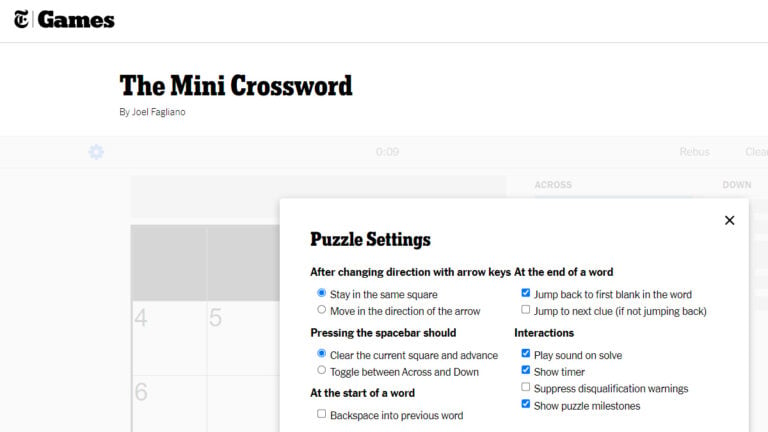Cultivating Resilience: A Guide To Mental Well-being

Table of Contents
Understanding Resilience: What it is and Why it Matters
Resilience is often misunderstood as a fixed personality trait, but it's actually a dynamic process—a skill that can be learned and strengthened over time. It's the ability to adapt and recover from difficult experiences, bounce back from setbacks, and maintain a positive outlook even when faced with challenges. It's not about avoiding stress or hardship, but about developing the capacity to manage and overcome them effectively.
The benefits of building resilience are numerous and far-reaching:
- Improved mental health: Resilience acts as a buffer against stress, anxiety, and depression, promoting overall mental well-being.
- Better stress management: Resilient individuals possess effective coping mechanisms that allow them to navigate stressful situations more effectively.
- Increased adaptability to change: Resilience fosters flexibility and the ability to adjust to new circumstances and challenges.
- Enhanced problem-solving skills: Resilient individuals are better equipped to identify problems, develop solutions, and take action.
- Greater life satisfaction: By building resilience, you increase your capacity to experience joy, fulfillment, and overall life satisfaction.
It's important to dispel common misconceptions. Resilience doesn't mean you'll never experience difficult emotions or setbacks. It means you have the tools and strategies to cope with adversity and emerge stronger. It's not about being invincible, but about being adaptable and resourceful.
Building Blocks of Resilience: Practical Strategies for Mental Well-being
Building resilience is a journey, not a destination. It requires consistent effort and the integration of several key strategies into your daily life.
Mindfulness and Self-Awareness
Mindfulness practices, such as meditation and deep breathing exercises, are crucial for cultivating self-awareness and emotional regulation. By paying attention to your thoughts and feelings without judgment, you can identify triggers, manage stress responses, and develop healthier coping mechanisms. Regular self-reflection through journaling can further enhance self-awareness and provide insights into your emotional patterns.
- Meditation: Even 5-10 minutes of daily meditation can significantly reduce stress and improve focus.
- Deep breathing: Practicing deep, diaphragmatic breathing can calm the nervous system and reduce anxiety.
- Journaling: Writing down your thoughts and feelings can help you process emotions and identify patterns.
Healthy Lifestyle Choices
Physical and mental health are intricately linked. A healthy lifestyle plays a vital role in building resilience.
- Regular Exercise: Physical activity releases endorphins, which have mood-boosting effects. Aim for at least 30 minutes of moderate-intensity exercise most days of the week.
- Balanced Nutrition: A diet rich in fruits, vegetables, and whole grains provides the nutrients your body needs to function optimally.
- Sufficient Sleep: Aim for 7-9 hours of quality sleep each night to allow your body and mind to rest and repair.
Building Strong Social Connections
Strong social support networks are essential for resilience. Connecting with others provides a sense of belonging, offers emotional support, and helps you feel less alone during difficult times.
- Nurture existing relationships: Make time for loved ones and strengthen your bonds through meaningful interactions.
- Build new connections: Join clubs, groups, or volunteer organizations to expand your social circle.
- Seek professional support: Don't hesitate to reach out to a therapist or counselor if you need additional support.
Developing Coping Mechanisms
Effective coping mechanisms are crucial for navigating challenges. This involves learning to manage stress, regulate emotions, and solve problems effectively.
- Problem-solving skills: Develop your ability to identify problems, brainstorm solutions, and take action.
- Stress reduction techniques: Incorporate relaxation techniques like yoga, progressive muscle relaxation, or guided imagery into your routine.
- Emotional regulation: Learn to identify and manage your emotions effectively, preventing them from overwhelming you.
Overcoming Challenges: Strategies for Navigating Difficult Times
When faced with adversity, it's important to remember that challenges are temporary and you possess the inner strength to overcome them. Reframing negative thoughts, focusing on solutions, and seeking support are crucial strategies.
- Cognitive Behavioral Therapy (CBT): CBT techniques can help you identify and challenge negative thought patterns, replacing them with more realistic and positive ones.
- Seeking support: Reach out to friends, family, or mental health professionals for assistance during difficult times. Remember, seeking professional help is a sign of strength, not weakness.
Conclusion
Cultivating resilience is a journey that enhances your mental well-being and empowers you to navigate life's challenges with greater ease and effectiveness. By incorporating mindfulness practices, healthy lifestyle choices, strong social connections, and effective coping mechanisms into your daily routine, you can build a strong foundation for resilience. Remember that setbacks are inevitable, but your ability to bounce back and learn from them is what truly defines your resilience. Start cultivating resilience today by incorporating mindfulness practices into your daily routine. Take small steps, and remember that building resilience is a journey, not a destination. For further support and resources on mental health, visit [link to a relevant mental health organization] and [link to a self-help resource].

Featured Posts
-
 Billionaire Boy Inheritance Influence And Impact
May 20, 2025
Billionaire Boy Inheritance Influence And Impact
May 20, 2025 -
 A Nigerian Context Analyzing The Themes Of Redemption In The Kite Runner
May 20, 2025
A Nigerian Context Analyzing The Themes Of Redemption In The Kite Runner
May 20, 2025 -
 Rey Fenix Joins Smack Down Next Week New Wwe Ring Name Announced
May 20, 2025
Rey Fenix Joins Smack Down Next Week New Wwe Ring Name Announced
May 20, 2025 -
 Reps Vow To Recover 1 231 Billion From Oil Firms
May 20, 2025
Reps Vow To Recover 1 231 Billion From Oil Firms
May 20, 2025 -
 April 25 2025 Nyt Crossword Puzzle Answers
May 20, 2025
April 25 2025 Nyt Crossword Puzzle Answers
May 20, 2025
Latest Posts
-
 Tv Host Lorraine Kellys Response To David Walliams Cancelled Remarks
May 20, 2025
Tv Host Lorraine Kellys Response To David Walliams Cancelled Remarks
May 20, 2025 -
 Gangsta Granny A Review Of David Walliams Hilarious Book
May 20, 2025
Gangsta Granny A Review Of David Walliams Hilarious Book
May 20, 2025 -
 David Walliams Cancelled Joke Leaves Lorraine Kelly Uncomfortable
May 20, 2025
David Walliams Cancelled Joke Leaves Lorraine Kelly Uncomfortable
May 20, 2025 -
 Lorraine Kellys Awkward Tv Moment David Walliams Cancelled Comment
May 20, 2025
Lorraine Kellys Awkward Tv Moment David Walliams Cancelled Comment
May 20, 2025 -
 New Cliff Richard Musical A Collaboration A Challenge
May 20, 2025
New Cliff Richard Musical A Collaboration A Challenge
May 20, 2025
